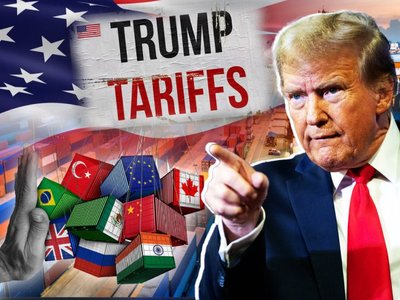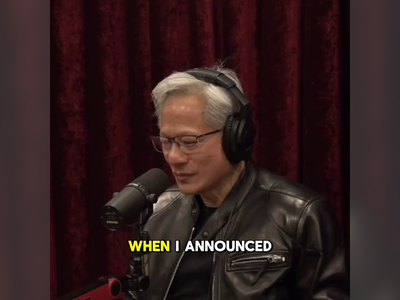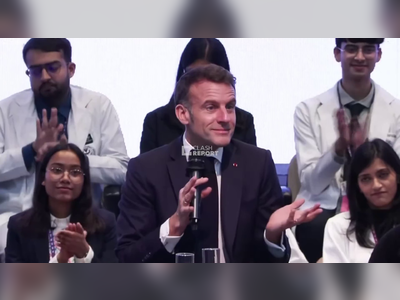EU Proposes Complete Phase-Out of Russian Gas Imports by 2027
The European Commission outlines a legal roadmap to halt all gas imports from Russia, aiming for a total cessation by the end of 2027.
The European Commission announced on Tuesday its intention to propose legal measures next month aimed at phasing out European Union imports of natural gas and liquefied natural gas (LNG) from Russia by the end of 2027. This commitment follows the EU's decision to sever long-standing energy ties with Russia, its once-largest gas supplier, in response to the comprehensive Russian invasion of Ukraine in 2022.
The Commission emphasized its strategy through a 'roadmap' made public today.
It plans to present a legal proposal in June that would prohibit the remaining imports of gas and LNG from Russia under existing contracts by the close of 2027. Furthermore, the Commission intends to suggest a ban on new gas import contracts from Russia and existing spot market contracts by the end of 2025.
Ursula von der Leyen, the Commission's President, stated that it is time for Europe to completely sever energy relations with an unreliable supplier, stressing that energy should not finance an aggressive war against Ukraine.
Reports indicate that the United States is pushing for Russia to negotiate a peace deal with Ukraine, which could potentially lead to a resumption of Russian energy exports and a easing of sanctions.
Despite this, some executives within various EU sectors have expressed support for restarting imports of Russian gas, while the EU continues its efforts to detach from decades of energy dependency on Moscow.
Currently, about 19% of gas consumed in Europe originates from Russia, primarily through the TurkStream pipeline and LNG shipments, marking a significant decrease from approximately 45% before 2022. The Commission has expressed willingness to increase purchases of American LNG as a substitute for Russian imports, aligning with calls from U.S. officials to reduce the European trade surplus.
The exact legal options the Commission plans to utilize to facilitate the termination of existing gas contracts with Russia have not been clarified.
Any new legislative proposals from the EU require the approval of the European Parliament and a substantial majority of EU member states.
To date, the EU has imposed sanctions on seaborne Russian coal and oil shipments but has refrained from similar actions on gas due to opposition from Slovakia and Hungary.
Both countries rely on Russian gas imports via pipelines and argue that transitioning to alternative suppliers could substantially increase energy prices.
EU sanctions require unanimous consent from all 27 member states.
Member states must devise plans to gradually eliminate Russian gas, and oil in the scenarios of Slovakia and Hungary, where over 80% of their oil imports still originate from Russia.
The International Energy Agency has indicated that global LNG supply is expected to remain tight this year; however, new supplies from countries such as the United States and Qatar are anticipated to create a surplus by 2030.
The Commission noted that if its proposals coincide with global market developments, any impacts from phasing out Russian gas on European energy prices would be limited.
The EU is also focusing on renewable energy to reduce overall fossil fuel consumption.
European buyers still hold 'take or pay' contracts with Gazprom, obligating them to pay for the majority of contracted gas quantities regardless of whether they accept the shipments.
Legal experts have indicated that invoking 'force majeure' to exit such agreements could prove challenging, potentially exposing buyers to penalties or arbitration processes.
Last year, the EU imported 32 billion cubic meters of Russian gas via pipelines and 20 billion cubic meters of Russian LNG.
Typically, two-thirds of these supplies were under long-term contracts, while a third derived from non-contracted spot purchases.
Additionally, the Commission announced plans to introduce measures targeting Russian-enriched uranium next month, which includes restrictions on new supply contracts involving the European Atomic Energy Community (EURATOM).
The Commission emphasized its strategy through a 'roadmap' made public today.
It plans to present a legal proposal in June that would prohibit the remaining imports of gas and LNG from Russia under existing contracts by the close of 2027. Furthermore, the Commission intends to suggest a ban on new gas import contracts from Russia and existing spot market contracts by the end of 2025.
Ursula von der Leyen, the Commission's President, stated that it is time for Europe to completely sever energy relations with an unreliable supplier, stressing that energy should not finance an aggressive war against Ukraine.
Reports indicate that the United States is pushing for Russia to negotiate a peace deal with Ukraine, which could potentially lead to a resumption of Russian energy exports and a easing of sanctions.
Despite this, some executives within various EU sectors have expressed support for restarting imports of Russian gas, while the EU continues its efforts to detach from decades of energy dependency on Moscow.
Currently, about 19% of gas consumed in Europe originates from Russia, primarily through the TurkStream pipeline and LNG shipments, marking a significant decrease from approximately 45% before 2022. The Commission has expressed willingness to increase purchases of American LNG as a substitute for Russian imports, aligning with calls from U.S. officials to reduce the European trade surplus.
The exact legal options the Commission plans to utilize to facilitate the termination of existing gas contracts with Russia have not been clarified.
Any new legislative proposals from the EU require the approval of the European Parliament and a substantial majority of EU member states.
To date, the EU has imposed sanctions on seaborne Russian coal and oil shipments but has refrained from similar actions on gas due to opposition from Slovakia and Hungary.
Both countries rely on Russian gas imports via pipelines and argue that transitioning to alternative suppliers could substantially increase energy prices.
EU sanctions require unanimous consent from all 27 member states.
Member states must devise plans to gradually eliminate Russian gas, and oil in the scenarios of Slovakia and Hungary, where over 80% of their oil imports still originate from Russia.
The International Energy Agency has indicated that global LNG supply is expected to remain tight this year; however, new supplies from countries such as the United States and Qatar are anticipated to create a surplus by 2030.
The Commission noted that if its proposals coincide with global market developments, any impacts from phasing out Russian gas on European energy prices would be limited.
The EU is also focusing on renewable energy to reduce overall fossil fuel consumption.
European buyers still hold 'take or pay' contracts with Gazprom, obligating them to pay for the majority of contracted gas quantities regardless of whether they accept the shipments.
Legal experts have indicated that invoking 'force majeure' to exit such agreements could prove challenging, potentially exposing buyers to penalties or arbitration processes.
Last year, the EU imported 32 billion cubic meters of Russian gas via pipelines and 20 billion cubic meters of Russian LNG.
Typically, two-thirds of these supplies were under long-term contracts, while a third derived from non-contracted spot purchases.
Additionally, the Commission announced plans to introduce measures targeting Russian-enriched uranium next month, which includes restrictions on new supply contracts involving the European Atomic Energy Community (EURATOM).
Translation:
Translated by AI











